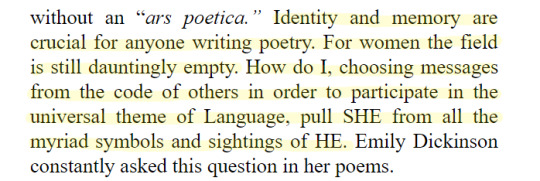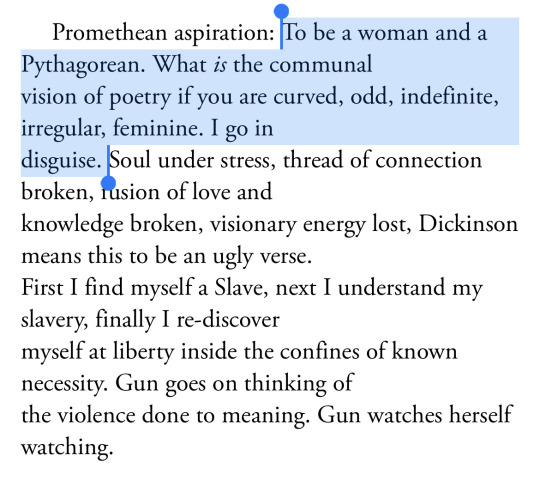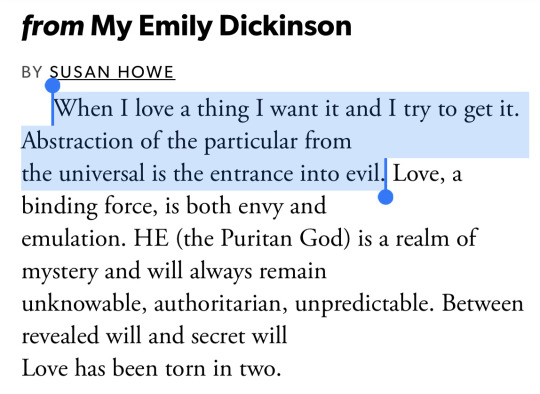#Susan Howe
Text
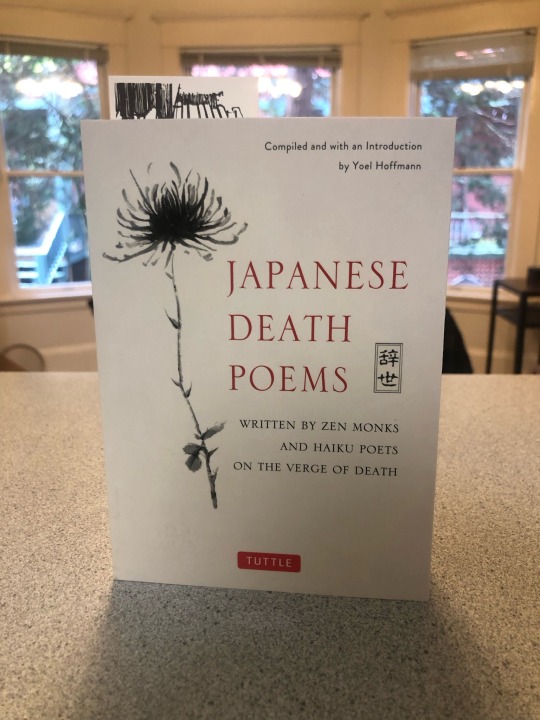
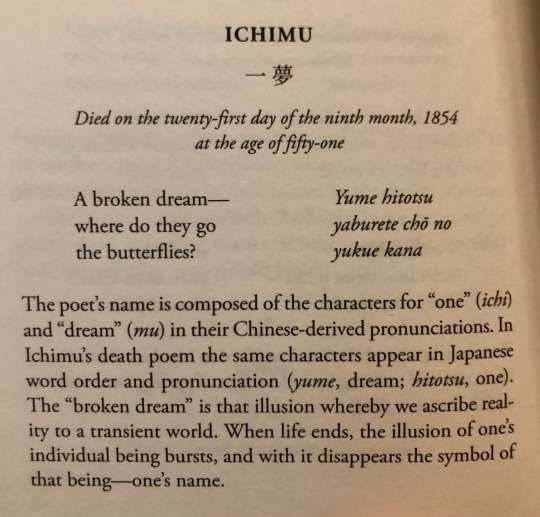
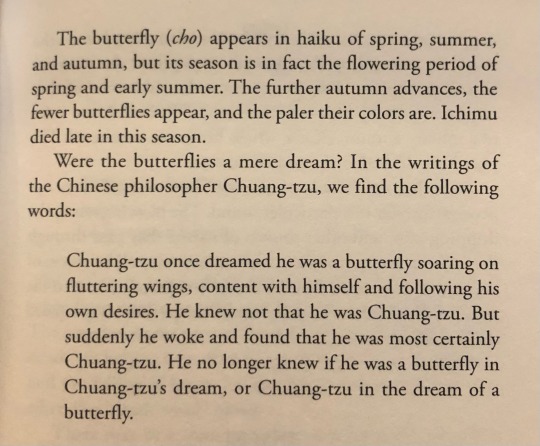
After I finished making a midterm exam, Molly and I went to a secret Japanese tea house. It appears on no map, has no hours, no sign. It is as though it exists, somehow, outside this world. When you enter, you give your phone to the owner to lock in a box for the duration of your visit.
We stayed for nearly 6 hours—sat reading poems, chatting with the eccentric owner about Sufism and the ocean and his peculiar flower arrangements consisting of a mix of living and dead plant matter.
How can I describe it, the strange sensation of being alive, late at night in those dim lights, surrounded by beauty. I got up to look at the wares, inhaled the hinoki essential oil—Max Richter was playing as I stared at blank notecards and imagined writing someone a heartfelt note, writing bravely, from that bewitched and emotionally authentic space I was in. I felt a sudden pang. It was the moment opening, with all its counterfactuals, what could have been, what will never be—how deeply I could feel, in that instant, the texture of my grief.
When I’m in the hustle and bustle of my busy and now quite ordinary life, I think, if only I could really hear the voice that says,
“Jackie, it was not for this that you were created.”
Then I would give away all my things and spend my days in prayer.
Susan Howe writes that for Sarah Edwards, “all works of God are a kind of language or voice to instruct us in things pertaining to calling and confusion.”
“...each soul comes upon the call of God in his word. I read words but don’t hear God in them.”
Did I pray, how long in supplication, with my inner eye fixed on that phantom, the phantom with her eyes stitched shut, limbs covered in oak moss. A dream of the opening of the eyes, the inert limbs now lithe and moving toward you. Ordinary objects and sounds are suddenly strange. That’s when the phantom slips through, when I hear the birds singing in a tree...
The blooming moment. Retrospectively, I am convinced that its condition of possibility was the confiscation of my phone, that it is only when we are unplugged that we can sense these holy emanations.
How calm we were, leafing through the book of Japanese death poems (jisei) in the tea house. What will be the last words I write before dying? For all I know, it could be this, or this. I remembered the dying words of George Mackay Brown: “I see hundreds and hundreds of ships sailing out of the harbour.” I remember the fragments Kafka wrote while dying, “lemonade everything was infinite,” his concern for the peony, the improvised performance—the incantation—I did at the Zinc Bar in 2015 using Kafka’s dying words, how J wept in the audience, then wrote me about the snow:
I am the guy, by the way, who said hi on the street, in the snow, after your reading. … I did indeed cry after your Kafka-Cixous incantation, partly because that phrase has been magic to me my whole life. I read Cixous' novel by that name when I studied with her and Derrida in my twenties... Her seminars were amazing. One day, funnily enough, she gave a seminar on snow in Proust, simply because snow was on the ground in Paris. For all sorts of reasons your whole reading shook and tenderised me deeply. I suppose, with the snow through the tinted glass outside, it will forever be, my imagination of what you read will forever be blanche niege texte.
(standing on the corner in manhattan with that powdery snow i was looking at the flowers when you walked past actually, turned, swivelled, i had needed to get out of the bar because the reading had touched me so much . . . i then went and wandered in the snow for an hour, till i happened on a subway, and back to my friend's in brooklyn . . . i have been thinking more today about how effective your reading was to me. it sort of made me feel i could only read poetry from now on if i was embodied, since what convinced in your reading beyond the obvious was the adjustments to us, the audience, the interruptions, the ability to break off, and then the actual concentration because of the embodiments . . . at most poetry readings i am constantly thinking 'i am at a poetry reading' and can't really get beyond the poem-as-poem-at-reading. when you read i was suddenly completely focused. the bodily resonation was right, a recuperation of grace, so i could listen. like before the internet or something. it returned me all the way to early cixous and feminine writing and what that could still mean, a writing beyond master-works and over-sociality of tact, agua viva, what korine might call 'mistakist' heaven. it was my first time in new york. my last night. stop. for now. cut the flowers.)
83 notes
·
View notes
Text
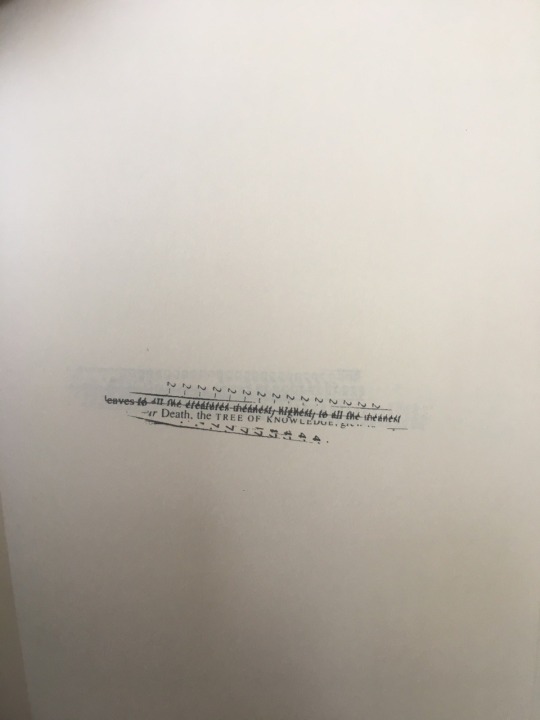

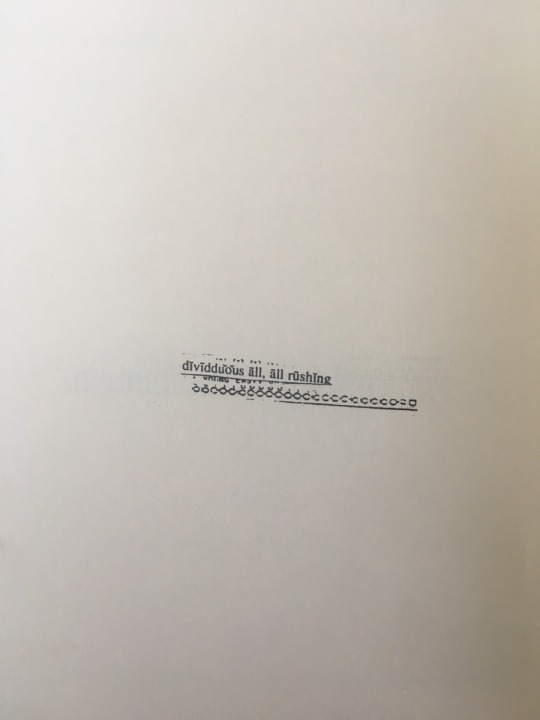
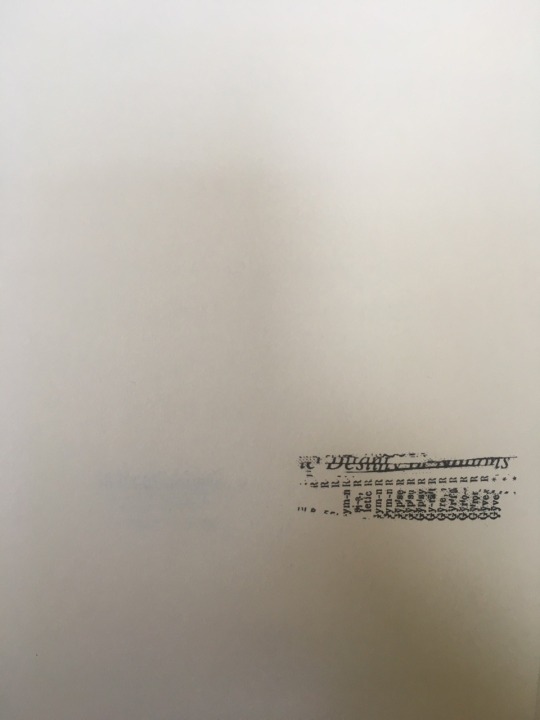
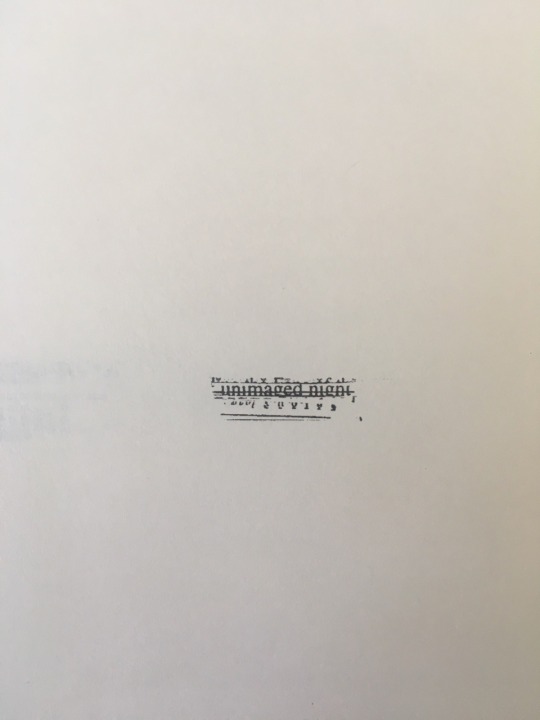

Susan Howe, from Depths
#hardstrut nothingness#susan howe#poetry#manuscript#experimental form#death#all i could hear was your pulse and the wind combing along my earbone like antimatter
44 notes
·
View notes
Quote
I want to write to break out into perfect primeval Consent. I wish I could tenderly lift from the dark side of history, voices, that are anonymous, slighted - inarticulated.
Susan Howe, Frame Structures
21 notes
·
View notes
Text

well :: almost my birthday.
[Poem by Susan Howe]
#Loving friends and kindred#susan howe#birthday#my favorites#words and writing#reading and writing#poetry#poem
3 notes
·
View notes
Photo

Robert Mangold, Untitled, from The Nonconformist's Memorial, 38 Poems by Susan Howe, (Ash woodblock & photo-engraved woodcut on Gampi/Kozo paper; background blocks grained by James Cooper), The Grenfell Press, New York, NY, 1992, Edition of 65, 18 books as special edition, 1 unbound set, 1 B.A.T. [© Robert Mangold, Susan Howe]
#graphic design#art#engraving#photoetching#woodcut#poetry#geometry#book#robert mangold#susan howe#james cooper#the grenfell press#1990s
61 notes
·
View notes
Photo


Susan Howe, «II. Silencio pitagórico» en Silencio pitagórico. Traducción de Enrique Winter.
9 notes
·
View notes
Text
Because the gaps
and silences are where you find yourself.
Susan Howe,
fThe Birth-mark: Unsettling the Wilderness in American Literary History
2 notes
·
View notes
Text
dear swedish academy [2nd message]
Dear Swedish Academy,
Lyn Hejinian, Susan Howe, Rachel Blau DuPlessis, Laura Moriarty, Rae Armantrout, Bernadette Mayer, Rosemarie Waldrop, Alice Notley, and let me add Jorie Graham.Not to mention Liliane Giraudon, Anne Portugal, Hélène Cixous and (not a poet) Julia Kristeva.
Best regardsMarco Giovenale
View On WordPress
#ALice Notley#Anne Portugal#Bernadette Mayer#Hélene Cixous#Jorie Graham#Julia Kristeva#Laura Moriarty#Liliane Giraudon#literature#Lyn Hejinian#nobel#Nobel Prize#premio Nobel#Rachel Blau DuPlessis#Rae Armantrout#Rosemarie Waldrop#Susan Howe
3 notes
·
View notes
Text
TBR Pile: 2024 Preview Reads: Poetry -
TBR Pile: 2024 Preview Reads: Poetry - Books I'm most looking forward to in 2024!
#bookworm#literature#book reviews#read read read#books#poetry#tbr pile#john ashbery#emily dickinson#susan howe#bhanu kapil#carmen gimenez#nathaniel mackey#james joyce#tc tolbert#layli long soldier
1 note
·
View note
Text
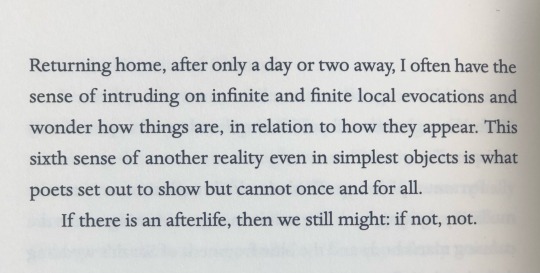
—Susan Howe, from “The Disappearance Approach” in That This
61 notes
·
View notes
Text
That This by Susan Howe
Day is a type when visible
objects change then put
on form but the anti-type
That thing not shadowed
The way music is formed of
cloud and fire once actually
concrete now accidental as
half truth or as whole truth
Is light anything like this
stray pencil commonplace
copy as to one aberrant
onward-gliding mystery
A secular arietta variation
Grass angels perish in this
harmonic collision because
non-being cannot be 'this'
Not spirit not space finite
Not infinite to those fixed—
That this millstone as such
Quiet which side on which—
Is one mind put into another
in us unknown to ourselves
by going about among trees
and fields in moonlight or in
a garden to ease distance to
fetch home spiritual things
That a solitary person bears
witness to law in the ark to
an altar of snow and every
age or century for a day is
0 notes
Text
Ok we all talk about the Pevensies' trauma at returning to Earth at the end of The Lion, the Witch, and the Wardrobe and their trouble readjusting to life there again but think of all the funny/good parts too
They return from the country, and their mom is surprised when all her children hug her at the station. Even Peter, who thinks he's all grown up. Even Edmund, who went away surly and withdrawn. She doesn't know her children haven't seen her in over a decade.
They miss their dear Cair Paravel, but they absolutely do not miss its chamber pots. Indoor plumbing is amazing.
It takes a while to remember how modern technology works, though. How many heart attacks did the siblings give their parents or the professor because they walked into a dark room only to turn on the light and find the children sitting there in the dark. (They were by the window! There was still plenty of light from the sunset! They would have gotten a candle in a minute!) The kids sheepishly remember oh yeah electricity is a thing.
(Edmund has a new electric torch in Prince Caspian. He was so excited to get that torch. Almost more excited than you'd think a kid his age would be, and his parents expect Peter at least to tease him, but the siblings all agree light in your hand at the touch of a switch is terrific.)
Suddenly getting really high grades in some subjects and terrible in others. Their grammar, reading comprehension, spelling, vocab, even penmanship? Amazing. History and geography? They don't remember anything. One time in class Susan forgets Earth is round and wants to die.
Also they can never remember what the date is supposed to be because Narnia uses different months and years. They can estimate time really well by looking at the sun though, and Edmund at least can always tell which way is north etc without thinking about it (again, using the sun)
Okay but how many times did they go to pick something up or reach something and realize they are so much shorter and less muscled than they expect? It's a common sight to see Peter climbing on counters to reach a top cabinet, grumbling about how he's High King this is demeaning. (No he never takes the extra five seconds to grab a stool. He will climb that shelf.)
Peter and Susan being delighted because they are no longer almost thirty. (In a few years Edmund and Lucy will tease them about being old and their parents will not understand.)
Lucy doesn't have to deal with periods anymore for a few years yet. Susan might not either. Heck yeah
Lucy loves to climb into her siblings' laps and be cuddled. In Narnia she eventually she grew too big, but now she is small and snuggleable again. Peter is her favorite, and if she's upset, he'll tickle her and tell bad jokes until she's smiling again, but really she loves cuddling with all her family. She grew up without her parents; how many times did she just want to crawl into her mom's lap and her mom was a world away? Imagine the first time she realizes she can now. Or, imagine one day, a cold and grey sort of day, when the rain is pattering against the windows, and it sounds like the rain on the windows of the Professor's house, that first day they went exploring. It sounds like the day they played hide and seek. It sounds so like the rain on the windows of Cair Paravel, that if Lucy closes her eyes she can imagine she's back there, having tea and chatting with Mr. Tumnus before the fireplace of her room, and soon the rain will stop, and they will go out on the balcony and wave to the naiads and the dryads and the mermaids, who have come out to enjoy the rain and visit one other on the banks of the Great River winding past Cair Paravel down to the sea.
But if Lucy looks out the window, all she'll see is the rain over London, so it's not only a cold and grey sort of day, it's a lonely sort of day too.
Susan and Edmund are playing chess in the living room (and they must have studied with Professor Kirke, thinks their mother, because they certainly weren't that good when they left). Lucy goes over to Edmund, and oh dear, thinks their mother, now he's going to call her a baby and be horrible to her, but instead he picks her up and puts her on his lap without even taking his eyes off the chessboard; it's simply a matter of course.
"Doesn't the rain sound familiar?" says Lucy in a solemn, wistful way.
Their mother doesn't know what that means, but her siblings must, because Susan says, "Yes, Lu, it does,” and Edmund gives her a little hug with his free arm as she tucks herself under his chin to watch the chess match.
(Five minutes later there is a crash from the next room as Peter falls off a counter. Their mother does not understand the words he must have picked up from the Professor, but he's grounded for them anyway. His siblings have no respect for their High King, because they refuse to stop laughing.)
#the chronicles of narnia#narnia headcanons#peter pevensie#susan pevensie#edmund pevensie#lucy pevensie#helen pevensie#the pevensies#okay this did end up a little bittersweet at the end but I tried#let's all just focus on the high king falling off counters alright#and yes the siblings all picked up narnian swear words and i refuse to believe otherwise#i'm also suddenly wondering how much language drift there is in narnia#when the pevensies return in prince caspian are all the swear words/exclamations they learned outdated?#are they using the narnian equivalent of oh horsefeathers?#nova actually posts stuff#long post //#the higher the queuer#post lww pevensies#soft post lww headcanons
18K notes
·
View notes
Text

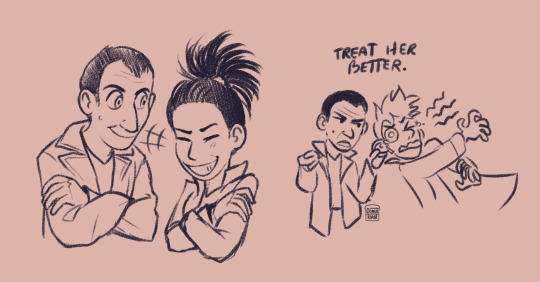

Some crossovers I thought would be fun and the first doctor and his granddaughter Susan! I've been watching some Classic Who and I cried at her departure :'o)
#when 15 says he's alone.... girl where that susan foreman revival at!!!#BRING BACK SUSAN THE DOCTOR NEEDS HER NOW MORE THAN EVER#the eleventh doctor is so hard to draw but i'm super happy with how he turned out!!#11th doctor#eleventh doctor#doctor who#matt smith#bill potts#pearl mackie#9th doctor#ninth doctor#christopher eccleston#martha jones#freema agyeman#10th doctor#tenth doctor#the doctor#david tennant#first doctor#1st doctor#william hartnell#carole ann ford#susan foreman#doctor who art#doctor who fanart#dw art#dw fanart#classic who#nuwho#new who
2K notes
·
View notes
